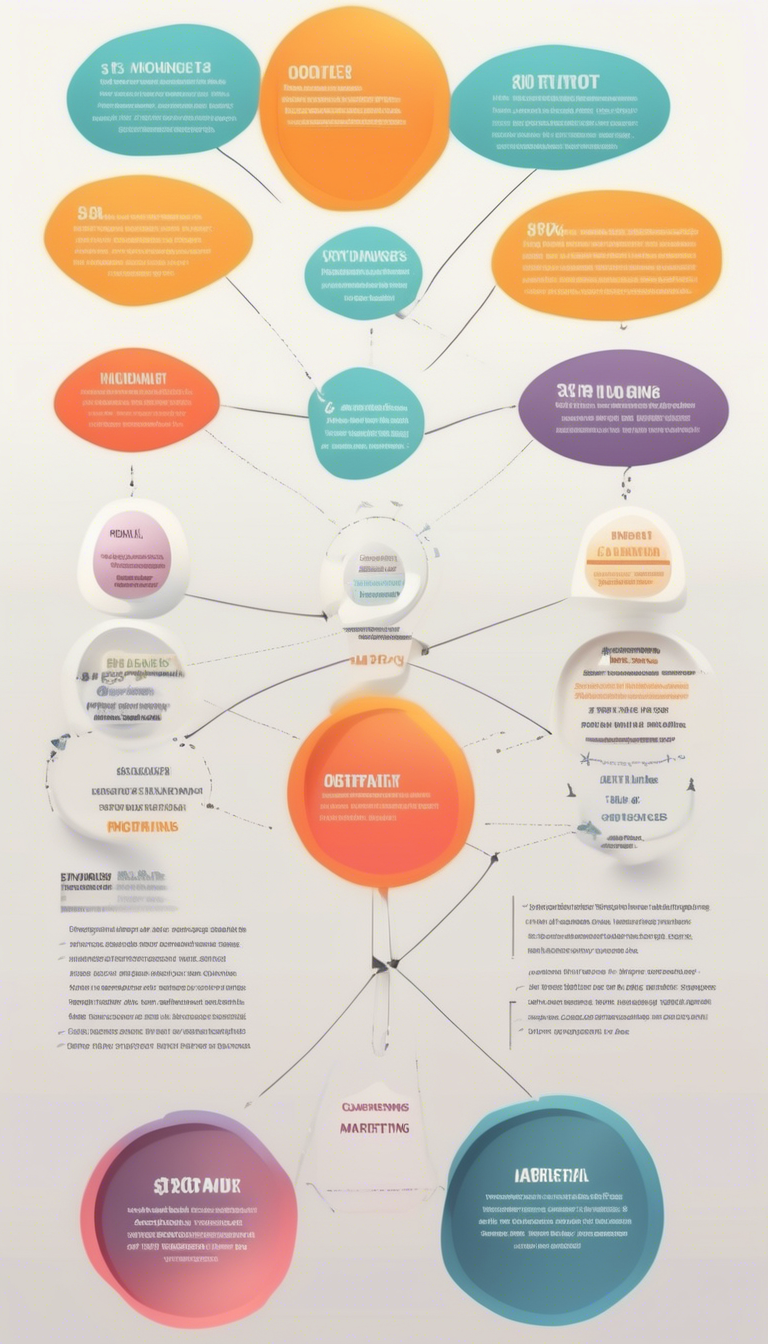Exploring the Advantages and Disadvantages of Multi-Level Marketing
Multi-level marketing (MLM) has garnered attention over the years, attracting individuals eager to achieve financial independence. As with any business model, MLM comes with its set of advantages and disadvantages. Understanding these factors can help potential participants make informed decisions.
Key Advantages of Multi-Level Marketing
One of the primary advantages of MLM is the opportunity for passive income. When you recruit others into your network, you can earn commissions based on their sales. This structure allows individuals to build a residual income stream, which can be lucrative if the team performs well.
- Low Start-Up Costs: Compared to traditional businesses, entering an MLM typically requires minimal initial investment. Most companies charge a nominal fee, making it accessible for many people.
- Flexible Working Hours: MLM offers the flexibility to choose your working hours, allowing you to work around family commitments or other jobs. This flexibility attracts those seeking a balance between work and personal life.
- Personal Development: Many MLM companies provide training that focuses on sales, marketing, and personal development. This training can enhance your skills and promote personal growth, benefitting both your MLM venture and your career.
- Community Support: Engaging with a network of like-minded individuals can be motivating. Most MLM organizations foster a supportive culture, helping members connect and share experiences.
Potential Disadvantages of Multi-Level Marketing
While MLM provides several perks, it’s essential to consider potential downsides. The controversial nature of MLM can raise questions about its legitimacy and ethical implications.
- High Turnover Rate: Most people who enter MLMs do not stay long. The high turnover can lead to instability within the team structure, which may affect your earnings.
- Pressure to Recruit: Success in MLM often hinges more on recruiting than selling products. This pressure can lead to strained relationships as individuals may feel compelled to pitch to friends and family constantly.
- Pyramid-like Structure: Critics argue that MLM resembles a pyramid scheme, where only those at the top benefit significantly. As a result, many new recruits may struggle to earn money, raising ethical concerns.
- Market Saturation: As more individuals join the same MLM company, the market can become saturated, making it challenging to sell products or recruit new members.
Evaluating MLM Models
Different MLM structures exist, and it’s crucial to evaluate them carefully. Some companies offer legitimate products and services, while others may rely more on recruitment to generate revenue. When considering an MLM opportunity, keep the following in mind:
- Product Quality: Ensure the product you’ll be selling is of high quality and has a market demand. If the product is subpar or overpriced, sales will likely suffer.
- Compensation Plan: Analyze the company’s compensation plan. Look for clarity and fairness in how commissions are earned, including bonuses for recruiting.
- Company Reputation: Research the company’s history and gather feedback from current and former members. Online reviews and social media discussions can provide insights into the company’s integrity.
Making the Decision
Ultimately, deciding whether to engage in multi-level marketing requires careful consideration of its advantages and disadvantages. For some, it can serve as a viable path to financial independence, while for others, it may lead to wasted time and resources. Consider your goals, skills, and willingness to navigate the challenges associated with MLM.
When approaching multi-level marketing, take a proactive stance. Research extensively, connect with current participants for honest insights, and assess whether this business model aligns with your personal and financial aspirations. It’s about making an informed choice that can support your long-term success.
Multi-level marketing presents both opportunities and hurdles. By comprehensively evaluating its advantages and disadvantages, prospective marketers can make more informed decisions and potentially steer their MLM journey toward success.
Strategies for Success in Navigating Multi-Level Marketing Challenges
Navigating the world of multi-level marketing (MLM) can be both rewarding and challenging. To achieve success, it’s essential to have effective strategies in place. These strategies help individuals overcome common hurdles and thrive in the competitive landscape of MLM.
The Importance of Research
Before diving into any multi-level marketing opportunity, conducting thorough research is crucial. Understanding the market, the company’s structure, and the products being offered can set the foundation for success. Here are some key elements to consider:
- Examine the company’s history and reputation.
- Look into product quality and consumer demand.
- Assess the compensation plan and how it aligns with your goals.
- Join online forums or social media groups related to the MLM for insights from current members.
Researching these elements can help you make an informed decision, reducing the risk of entering a questionable opportunity.
Building a Strong Network
One of the cornerstones of success in MLM is building a robust network. Connection is key in this business model, and a strong network can significantly enhance your growth potential. Here are some strategies to expand your reach:
- Attend industry events: Participating in seminars, conventions, and workshops can help you meet like-minded individuals.
- Utilize social media: Platforms like Facebook, Instagram, and LinkedIn are excellent tools for connecting with potential clients and recruits.
- Host workshops: Offering free workshops on topics related to your MLM products can showcase your knowledge while attracting clients.
- Leverage personal connections: Don’t be afraid to tap into your existing network for introductions or referrals.
Growing a network takes time and consistency, but it’s essential for reaching new prospects and boosting sales.
Developing Marketing Skills
In a multi-level marketing environment, possessing strong marketing skills is vital. It enables you to effectively showcase your products and grow your business. To hone these skills, consider the following:
- Learn content marketing: Create valuable content that educates your audience about your products.
- Master social media marketing: Use social media ads or organic posts to reach a wider audience.
- Explore email marketing: Build a mailing list to nurture leads and keep in touch with clients.
As you build your marketing acumen, you’ll find it easier to attract and retain customers, which is crucial for success in MLM.
Setting Realistic Goals
Setting clear, achievable goals will help you stay focused and motivated in your MLM journey. Instead of aiming for unrealistic heights right away, consider breaking down your objectives into smaller, manageable tasks. For example:
- Start with a specific number of customers to reach each month.
- Set goals for recruitment, such as one new member per week.
- Establish sales goals based on your product line and market demand.
By tracking and adjusting your goals regularly, you can maintain motivation and celebrate small victories.
Continuous Learning and Adaptation
The MLM landscape is ever-evolving, so committing to continuous learning is essential. Stay informed about market trends, new marketing techniques, and changes in consumer behavior. Here are some ways to promote ongoing education:
- Attend training programs: Companies often offer workshops to help members improve their skills.
- Read industry blogs and books: Learning from experts can provide valuable insights and fresh perspectives.
- Engage in peer learning: Team up with fellow MLM participants to share experiences and strategies.
This commitment to learning ensures you remain competitive and prepared to face any challenges that may arise.
Maintaining a Positive Mindset
Last but not least, cultivating a positive mindset is instrumental in overcoming the inevitable challenges of MLM. Embrace setbacks as learning opportunities rather than failures. Techniques to foster positivity include:
- Practice gratitude: Keep a gratitude journal to remind yourself of the progress you’ve made.
- Surround yourself with supportive individuals: Connect with others who share your ambitions and can uplift you during tough times.
- Visualize success: Regularly envisioning your goals can create a sense of purpose and motivation.
By adopting these strategies, you can effectively navigate the challenges of multi-level marketing and carve out a path towards sustainable success.
Conclusion
Multi-level marketing (MLM) certainly invites a mix of enthusiasm and skepticism. By evaluating its advantages and disadvantages, individuals can make informed decisions about whether this business model aligns with their personal and financial goals. One of the most notable advantages of MLM is the potential for substantial earnings. Many participants appreciate that their income reflects their effort and commitment, creating a direct correlation between performance and reward. This opportunity for financial freedom is particularly attractive for individuals seeking part-time income or those wishing to pivot from conventional employment into entrepreneurship.
Moreover, MLM offers flexibility. Participants often work on their own schedules, allowing for a balance between personal commitments and business aspirations. This flexibility caters to various lifestyles, making it appealing for parents, students, or anyone interested in a side hustle. The camaraderie often found within MLM groups can also be a significant boost. Participants benefit from support networks, training resources, and mentoring, creating a sense of community that can enhance learning and growth.
However, navigating the space of MLM presents its own set of challenges. Not every participant achieves the level of success they hope for, largely due to the intense competition within the industry. As new members continuously enter the market, distinguishing oneself can become increasingly difficult. Many may find themselves disillusioned when consistent results don’t match the ambitious promises they first encountered, leading to a high turnover rate.
Another disadvantage of MLM lies in the upfront investment often required to get started. While many companies allow for a relatively low initial purchase of inventory or a membership fee, many participants underestimate the ongoing costs associated with marketing and maintaining their business activities. For some, these investments can become a substantial financial burden, particularly if the expected returns don’t materialize.
The emphasis on recruitment in many MLMs can also present ethical questions. The focus on building a downline may lead some to prioritize new member acquisition over product sales. This can create an environment that resembles a pyramid scheme rather than a sustainable business model. Prospective participants must navigate the fine line between genuine recruitment and ethical concerns, making it crucial to choose a company with a solid reputation and a genuine product or service.
For those looking to achieve success in the MLM arena, it’s vital to adopt effective strategies that can mitigate challenges and amplify advantages. First and foremost, setting clear, achievable goals is paramount. By identifying specific targets, MLM participants can maintain motivation and track their progress over time. Whether it’s increasing sales, building a larger team, or enhancing product knowledge, having clear objectives can guide daily activities and push individuals towards success.
Building strong relationships is equally essential. MLM relies heavily on trust, and establishing connections with customers and downline members can facilitate growth. Engaging authentically with potential clients and team members fosters an environment of loyalty, which can translate into increased sales and recruitment. Networking both within and outside of your organization can bring fresh perspectives and innovative ideas, further reinforcing your success journey.
Digital marketing strategies can significantly impact your MLM effectiveness. Leveraging social media, building a professional website, and engaging with audiences online are actions that can enhance visibility and expand customer reach. Many successful MLM marketers utilize content marketing—providing potential customers with valuable information—thereby establishing authority in their niche and making themselves more approachable.
Continuous education is crucial in navigating the complex world of MLM. Staying informed about market trends, refining product knowledge, and attending relevant seminars can enhance leadership qualities. Participating in training programs can boost one’s ability to train and inspire their team, increasing the likelihood of collective success.
Ultimately, whether multi-level marketing becomes a success or a setback lies largely in the individual’s approach. Understanding the advantages and disadvantages allows for better preparedness and strategic planning. By focusing on application rather than mere participation, aspiring MLM entrepreneurs can navigate the inherent challenges while optimizing the potential benefits. Let passion, persistence, and an informed mindset guide your journey, as the right path in MLM could lead to both personal and financial fulfillment. Choosing wisely and implementing effective strategies can make a meaningful difference in one’s MLM journey, ultimately transforming challenges into triumphs.


